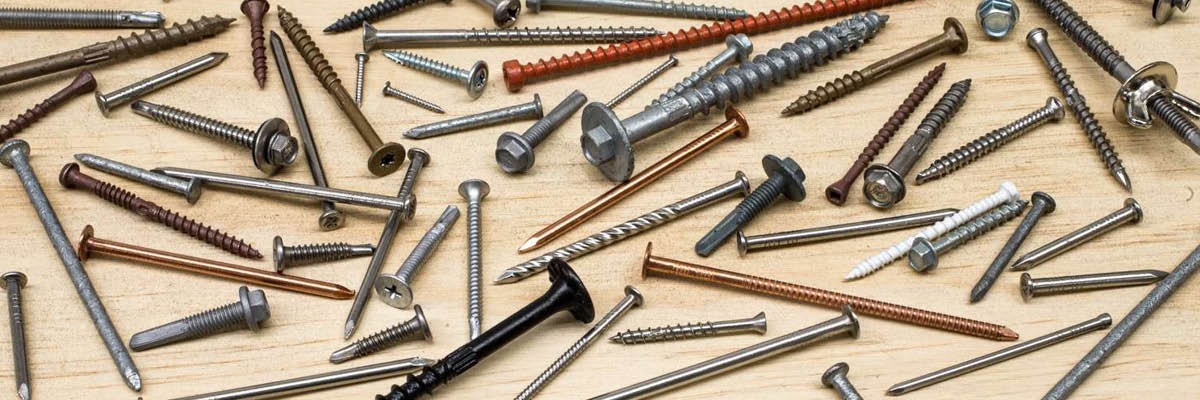Roofing nails have enough ridges to hold enough rustproofing can be pulled out when it s time to re roof.
Roofing tin fasteners nails vs screws.
With its unique fastening socket and fastener 2 hot dipped galvanized nails inserted at a precise 30 angle the hy grade steel roofing system has withstood the test of time.
At one time nails were preferred over screws because it was much easier and faster to hammer in nails than to use a manual screwdriver or spiral ratcheting screwdriver e g.
As the screws are driven the washer presses against the metal roofing to form a.
However it leaves you open to a wide range of maintenance issues including more age related maintenance woes.
Regardless of the structure you ll likely find that choosing the correct mechanical fastener plays a key role in the long term performance durability and efficacy of the project.
Nails are also called upon when securing plywood.
Screw down roofing is quick to apply and certainly cheaper.
In most instances screws will turn out to be marginally better than nails when it comes to this and so should be one of the first choices you make when the time comes.
Screws as our shake fastener because that s the fastener the system is designed for.
Nails are often preferred for structural joining including framing walls because they are more flexible under pressure whereas screws can snap.
Note that replacement screws are meant to replace nails or screws that failed.
Designed to fasten multiple layers of metal roof panels metal siding panels attach trim to metal building sheets or seal lap joints of metal building sheets.
Today the fasteners of choice for corrugated roofing are gasketed hex head screws with a metal and rubber washer below the head.
The installation of a new metal roof or wall panel on a residential home business or commercial building takes care precision and of course the right tools.
But these fasteners were notorious for leaking which is why they were always driven through the high points of the roofing profile.
12 14 and proz metal fasteners are 5 16 hex head screws.
Screws would be a waste considering the fastener is not driven all the way.
The fasteners have a neoprene washers that are the only thing standing between your roof and hundreds of leaks.
If you smash the gasket it will not work.
We use nails vs.

